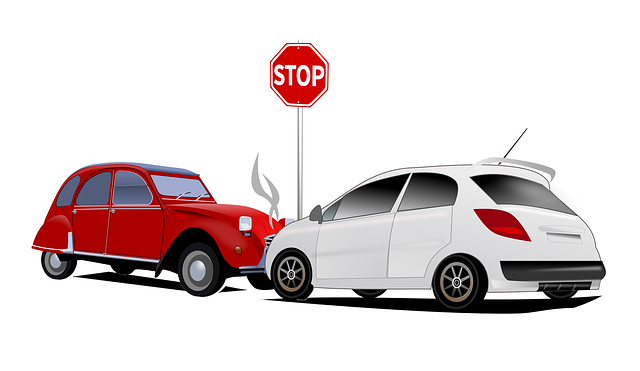Understanding the California Auto Accident Statute of Limitations

What is the Statute of Limitations for a Car Accident in California?
The car accident statute of limitations for a car accident claim in California is two years from the date of the injury.
This deadline applies to most car accident claims, but some exceptions can either shorten or extend this deadline.
The two-year statute of limitations is outlined in California law, specifically in CHAPTER 3 of the California Code of Civil Procedure.
Understanding the car accident statute is crucial when pursuing a legal claim for a car accident.
Missing this deadline could mean losing your right to seek compensation.
When Does the Statute of Limitations Begin?

In most cases, the statute of limitations “clock” for car accidents starts running on the date of the wreck.
The time limit can vary based on the facts of the case.
The statute of limitations begins on the date of the accident occurred, unless an exception applies. Property damage can also affect the timing of filing claims, as addressing any property damage in relation to filing deadlines is crucial.
It’s essential to understand when the statute of limitations begins to ensure you don’t miss the deadline.
Exceptions to the Statute of Limitations
- Claims Against a Government Entity: The deadline for lawsuits against government entities is 6 months from the date of the accident.
- Injured Minors: The countdown for injured minors to file a lawsuit does not begin until they reach legal adulthood (18 years old).
- Lack of Mental Capacity: The statute of limitations can be tolled (paused) until the injured party is restored to legal mental capacity.
- Discovery Rule: The deadline can be extended if symptoms of an injury or damage are not immediately apparent and only become apparent later.
The Discovery Rule and Its Impact
- The discovery rule allows victims to bring in additional defendants once the statute has been protected, even if symptoms of an injury do not appear immediately after a car accident.
- For example, the discovery rule could apply to a California car accident case if delayed-onset injuries occur, such as traumatic brain injuries or internal bleeding.
- The discovery rule can significantly impact the statute of limitations, so it’s crucial to understand how it applies to your case.
- A car accident lawyer can help you navigate the discovery rule and its impact on your case.
Filing a Claim
If you wait to file legal claims after the applicable statute of limitations expires, the defendant in your lawsuit can ask the judge to dismiss your case.
It’s critical to act quickly if you believe you have grounds for a California car accident claim, as the statute of limitations is important to remember even if you plan to settle your claim out of court.
Filing a claim promptly can help preserve physical evidence and increase the chances of a successful claim.
A car accident lawyer can help you file a claim and ensure you meet the necessary deadlines.
Wrongful Death Claims
- When a car accident is fatal, California allows family members to hold the responsible driver accountable for their negligence through a wrongful death claim.
- The statute of limitations for wrongful death claims is generally two years from the date of the victim’s death.
- Wrongful death claims against the government are subject to the same six-month notification requirement as personal injury claims.
- A car accident lawyer can help you navigate the complexities of a wrongful death claim.
Impact of Statute on Insurance Claims
The statute of limitations for car accident claims in California can significantly impact insurance claims. Insurance companies often have their own deadlines for filing claims, which may be shorter than the statute of limitations. If you fail to file a claim with the insurance company within their deadline, you may be barred from recovering compensation, even if you file a lawsuit within the statute of limitations. It is essential to review your insurance policy and understand the deadlines for filing claims. Additionally, it is crucial to consult with a car accident lawyer who can help you navigate the complexities of insurance claims and ensure that you comply with all deadlines.
Role of Evidence in Statute of Limitations
The role of evidence in the statute of limitations for car accident claims is crucial. The statute of limitations is designed to ensure that evidence is preserved and that claims are brought in a timely manner. If you wait too long to file a claim, evidence may be lost, destroyed, or become less reliable. This can make it more challenging to prove your case and recover compensation.
Physical evidence, such as damage to vehicles or property, can be particularly important in car accident cases. It is essential to preserve this evidence and to document the accident scene, including taking photographs and collecting witness statements. A car accident lawyer can help you gather and preserve evidence to support your claim.
Comparative Negligence and Its Effect on Claims
Comparative negligence is a doctrine that can affect car accident claims in California. Under comparative negligence, the court will reduce the amount of damages awarded to a plaintiff if they are found to be partially responsible for the accident. The statute of limitations can impact comparative negligence claims, as the court may consider the plaintiff’s delay in filing a claim as evidence of their negligence.
It is essential to consult with a car accident lawyer who can help you understand the impact of comparative negligence on your claim and ensure that you comply with the statute of limitations.
Consequences of Missing the Deadline
- Missing the deadline outlined in the statute of limitations can have significant consequences for your legal claim.
- In California, if you fail to file your car accident lawsuit within the two years, you generally forfeit your right to seek legal recourse for your injuries or damages.
- The court will likely dismiss your case, even if you have a valid claim and substantial evidence.
- You will be unable to recover any compensation for medical expenses, lost wages, pain and suffering, or other damages resulting from the accident.
Seeking Professional Help
Dealing with a car accident claim on your own can be overwhelming, especially when it comes to adhering to legal deadlines such as the statute of limitations. Consulting a personal injury lawyer can assist you in managing all aspects of your claim professionally and ensuring compliance with legal deadlines.
This will give you peace of mind and a better chance at a successful outcome.
Partnering with an attorney can help you navigate the complexities of your case and ensure that your rights are protected.
Next Steps
- If you’ve been involved in a car accident and need guidance on how to proceed, consult with a knowledgeable attorney.
- A car accident lawyer can help you understand the statute of limitations and its impact on your case.
- Contact a car accident lawyer for a free consultation to discuss your options and determine the best course of action for your case.
- Don’t wait until it’s too late – seek professional help today to ensure you receive the compensation you deserve.













